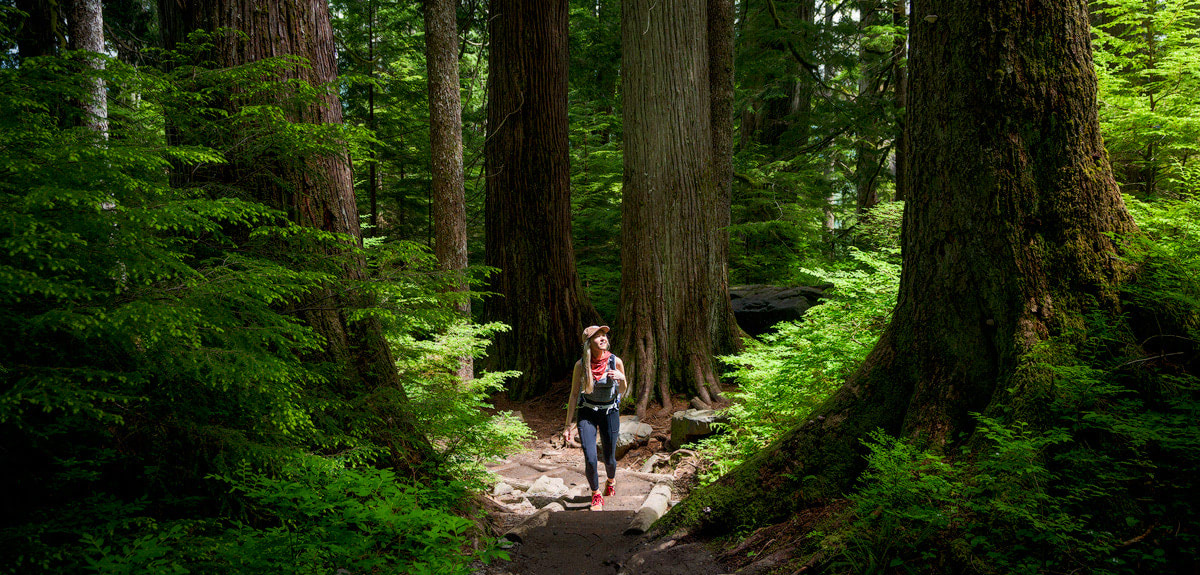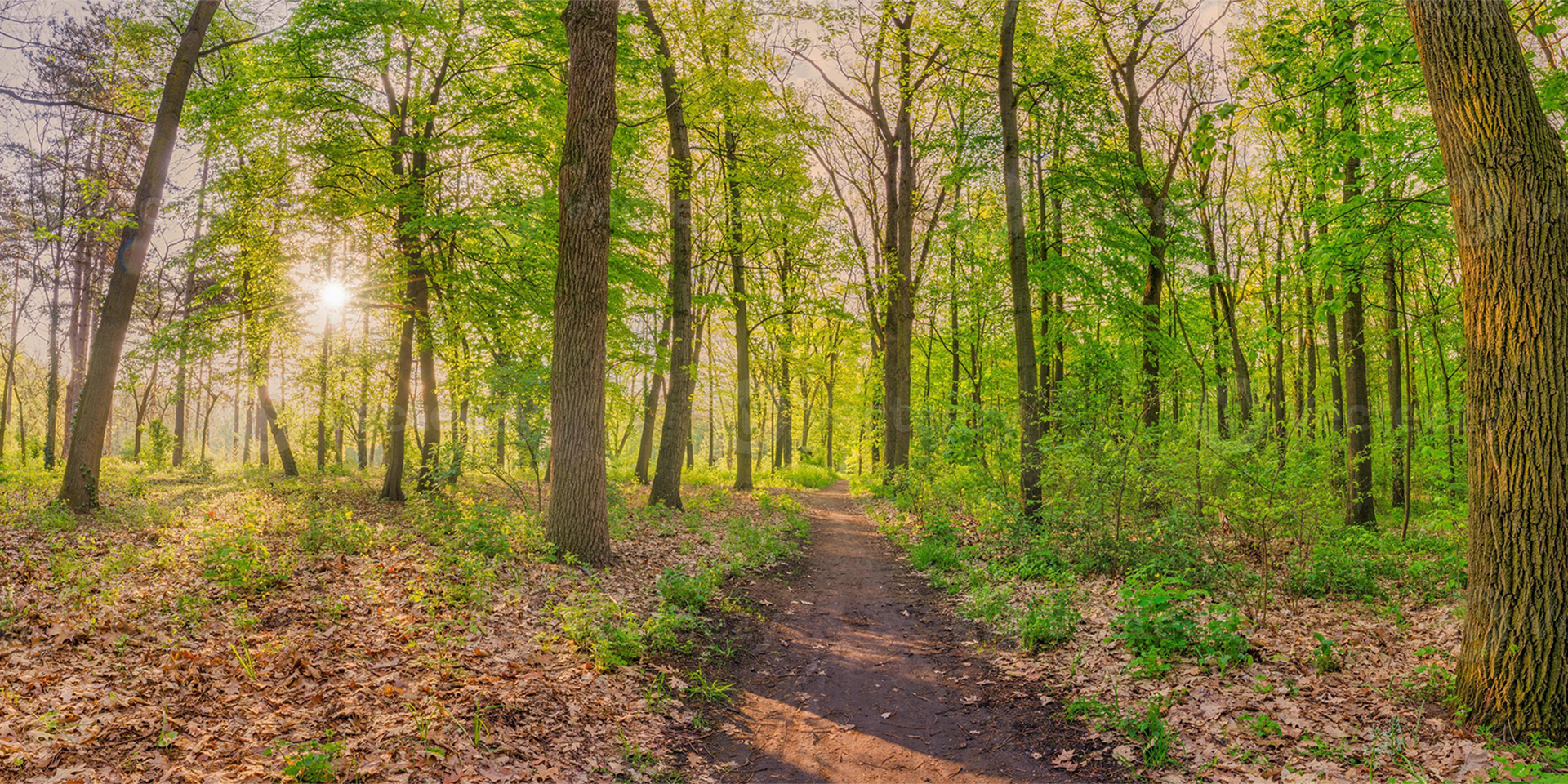Best Hiking Trails For Beginners: Finding Your Path In Nature
The world of hiking offers countless opportunities for adventure and connection with nature. However, for beginners, it can be overwhelming to choose the right trail. This article provides essential tips for novice hikers to help them find their first hiking trail and prepare for a safe and enjoyable experience.
When researching and choosing a trail, it’s crucial to consider your skill level and fitness. Opt for moderately difficult trails with minimal elevation gain and gentle inclines, and look for short distances and picturesque views. Additionally, ensure easy access to the trail and opportunities to hike with others.
Investing in proper gear and practicing hiking etiquette is essential for a safe and enjoyable experience. Leave no trace behind and set realistic goals and expectations for your hike. To maximize your enjoyment, consider joining a group or enlisting the help of an experienced friend.
Utilizing comprehensive guides is an excellent way for beginners to find the best hiking trails. These guides consider factors like ease of access, trail difficulty, and scenic beauty, making it easier to choose a suitable trail for your skill level and interests.
In summary, to find the best hiking trails for beginners, research and choose a trail that matches your skill level and fitness, opt for moderately difficult trails with minimal elevation gain and gentle inclines, look for short distances and picturesque views, ensure easy access and opportunities to hike with others, invest in proper gear and practice hiking etiquette, leave no trace behind, set realistic goals and expectations, and utilize comprehensive guides to help you find the best hiking trails for a safe and enjoyable experience.
Best Beginner Hiking Trails: How To Choose Your First Adventure
Finding the best hiking trails for beginners can be an exciting and rewarding experience. As you embark on your first hiking adventure, it’s essential to choose a trail that suits your skill level and preferences. To help you find your path in nature, we’ve compiled some key factors to consider when selecting the perfect beginner hike.
- Difficulty Level: As a beginner, it’s important to choose a trail that is relatively easy and well-suited for your skill level. Look for trails that are moderately difficult, with minimal elevation gain and gentle inclines. This will ensure a safe and enjoyable experience.
- Distance: Beginners may not be accustomed to long hikes, so opt for trails that are relatively short in distance. This will allow you to build your stamina and confidence without feeling overwhelmed.
- Scenic Beauty: One of the main attractions of hiking is experiencing the beauty of nature. Choose a trail that offers picturesque views, such as waterfalls, lush forests, or scenic vistas. This will make your hike more enjoyable and memorable.
- Accessibility: Consider the accessibility of the trail, as this can greatly impact your overall experience. Look for trails that are easy to reach, with well-marked trails and clear signage. This will ensure a stress-free experience and help you avoid getting lost.
- Company: Hiking with a friend or group can be a great way to stay safe and have fun. Many beginner-friendly trails are popular among hikers, so you’ll have plenty of opportunities to meet like-minded individuals.
By considering these factors, you’ll be well on your way to finding the perfect beginner hiking trail for your next adventure. So, lace up your boots, grab your backpack, and explore the great outdoors with confidence.
Essential Tips For Novice Hikers: Preparing For Your First Trail

Finding the best hiking trails for beginners can be a daunting task, but it doesn’t have to be. We have prepared essential tips for novice hikers to help you prepare for your first trail and find your path in nature.
First and foremost, it is crucial to research and choose a trail that matches your skill level and fitness. Look for trails that are well-maintained, have a low elevation gain, and are not too long. Additionally, make sure to check the weather forecast before embarking on your hike to avoid any unexpected surprises.
When it comes to preparing for your first trail, start by investing in the right gear. This includes comfortable and supportive hiking boots, breathable clothing layers, and a daypack to carry essentials like water, snacks, and a first-aid kit. Don’t forget to pack a map or use a GPS app on your smartphone to help you navigate the trail.
Another essential tip for novice hikers is to practice proper hiking etiquette. This includes yielding to uphill hikers, being mindful of wildlife, and respecting the environment. Additionally, it is important to leave no trace behind, meaning you should pack out all your trash and dispose of it properly when you return home.
Lastly, don’t forget to set realistic goals and expectations for your hike. It’s essential to listen to your body and take breaks when needed. If you’re new to hiking, consider joining a group or enlisting the help of an experienced friend to ensure a safe and enjoyable experience.
In conclusion, finding the best hiking trails for beginners and preparing for your first trail can be a rewarding and enjoyable experience. By following these essential tips and being well-prepared, you can confidently find your path in nature and embark on a new adventure.
Discovering Easy Hiking Trails: What Features To Look For
When embarking on a hiking adventure for the first time, it’s essential to find the perfect trail that caters to your skill level and preferences. At our site, we offer comprehensive guides to help you discover the best hiking trails for beginners, ensuring you find your path in nature. Our experts have considered various factors, such as ease of access, trail difficulty, and scenic beauty, to recommend trails that are perfect for those new to hiking.

In our guide, we delve into the essential features to look for when searching for easy hiking trails. These include well-maintained paths, gradual inclines, and picturesque surroundings that allow you to immerse yourself in the beauty of nature. Furthermore, we provide information on the necessary gear and equipment, as well as tips on how to prepare for your hike to ensure a safe and enjoyable experience.
By using our site, you can easily find the best hiking trails for beginners that cater to your preferences and skill level. Our team of experts is dedicated to providing you with valuable information and resources, so you can embark on your hiking journey with confidence and enthusiasm. So, discover your perfect trail today and let us help you find your path in nature.
Planning Your Hike: A Beginner’S Guide To Trail Etiquette And Safety
Finding the best hiking trails for beginners can be an exciting and rewarding experience as you explore nature and challenge yourself physically. To ensure a safe and enjoyable hike, it’s essential to plan and follow trail etiquette. We offer a beginner’s guide to help you navigate the great outdoors while adhering to safety and courtesy guidelines.
When choosing the perfect hiking trail for beginners, consider factors such as distance, elevation, and difficulty. Opt for trails with moderate inclines and relatively flat terrain, which will allow you to gradually build your stamina and confidence. Additionally, research the local flora and fauna to learn about the natural environment you’ll be exploring.
Planning your hike involves several key steps. First, familiarize yourself with trail maps and read reviews from other hikers to gain insights into the trail’s conditions. Next, ensure you have proper gear, including sturdy footwear, comfortable clothing, and a backpack with essential supplies like water, snacks, and a first-aid kit.
Trail etiquette is crucial for maintaining a positive experience for all hikers. When on the trail, yield to uphill hikers, and always be mindful of your surroundings. Keep noise levels low to avoid disturbing wildlife and other hikers. Additionally, practice “leave no trace” principles by disposing of waste responsibly and not disturbing natural habitats.
Safety should always be a top priority when embarking on a hike. Familiarize yourself with the signs of hypothermia, heatstroke, and altitude sickness, and know how to respond in case of an emergency. Always inform someone of your planned route and estimated return time, and carry a communication device in case of emergencies.
By following these guidelines, you’ll be well-prepared to find the best hiking trails for beginners and enjoy a safe, memorable experience in nature.
